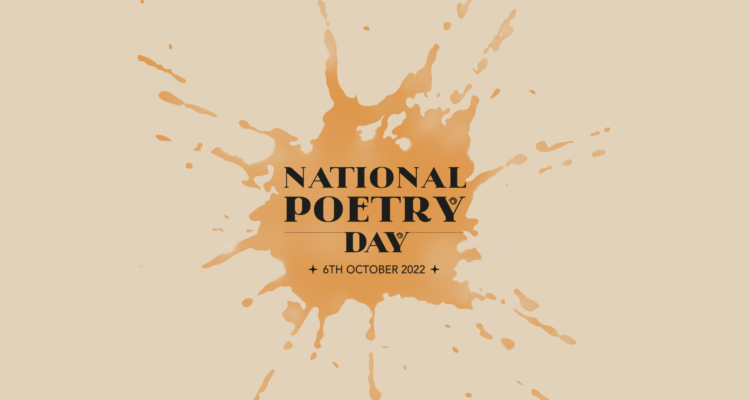Our Back Pages #4
This week's installment of "Our Back Pages" was originally printed in The Reader 17.
I was going to include a much more serious and dour-minded example of a review , until reading Brian Nellist's 'Ask the Reader' in the upcoming issue of The Reader, where he talks about Bertie Wooster with great affection. So here's David Leyland's review of Robert McCrum's biography of Wodehouse.
A Plum Not Ripe For the Picking
Robert McCrum, Wodehouse: A Life
London: Viking, 2004
ISBN 0-670-89692-6, £20
David Leyland
In these heathenish times, it is reassuring to recollect an era when ‘comedy’ meant something more sophisticated than Little Britain. Humour once had the panache of a pair of plus fours, and wit was not synonymous with feeble caricatures of the least privileged or banal catchphrases repeated until they become seared into a public’s consciousness. There were halcyon days of British comedy: days when our comedy was a little special.
Sometimes, however, it is hard to remember that British comedy is also the story of British comedy writing. After the sublime genius of Chaplin, who embodied the two skills so utterly, comedy became a matter of the actor and the script in distinct separation. There were occasional exceptions to the rule, ranging from Noel Coward to the Pythons, but it was usually the performers that reaped the glory and retained the public’s affection at the expense of the writer. All of which is apposite when one considers the publication of Robert McCrum’s biography of P.G. Wodehouse last year. In Wodehouse: A Life, McCrum reminds us that Britain’s greatest humorist (Plum to his friends and ‘The Master’ to his admirers) was himself overshadowed by a performer. That performer was a certain Pelham Grenville Wodehouse, and the performances of note were radio broadcasts made from Nazi-occupied Berlin in 1941.
Although Wodehouse was worldly in the sense that he made homes in England, America, and France, he was less so when it came to understanding the workings of that world. Living in Le Touquet at the beginning of May 1940, Wodehouse fatefully miscalculated the course of events and was trapped by the German war machine. After trying to live oblivious to the occupation, he was swept up by events and subsequently imprisoned, taken to an internment camp, and then on to Berlin from where he was persuaded to make the five, now notorious, non-political broadcasts. He was finally liberated in Paris, when the allies entered the city on 25 August 1944.
Although one of the more dramatic events in Wodehouse’s life, the ‘German problem’ might still be thought of as being of incidental note to any Wodehouse biographer. It occurred well into Wodehouse’s adulthood and had no bearing on his work. Even when charges of treachery were levelled at him, they brought out significant defenders. When the Allies took Paris, a young MI6 officer had been given charge of Wodehouse’s case. That officer was Malcolm Muggeridge who, after being initially indifferent to Wodehouse, became a close friend and dismissed Plum’s problems as stemming from his being ‘a-worldly; a born neutral’. More famously, George Orwell picked apart what he saw as the ‘out-of-dateness’ of his hero’s novels, and went on to argue that the ‘wretched’ Wodehouse had simply ‘remain[ed] mentally in the Edwardian age’. Wodehouse himself admitted that he’d developed little after the age of eighteen, and he was still penning adventures of the high Edwardian, Bertie Wooster, into the decade of the hippies and beyond. By then, even the British establishment had forgiven him. Wodehouse received a knighthood in 1975, in the same New Year honours list in which Britain also acknowledged another of its wayward sons, Charles Chaplin.
So while we have before us an admirable biography, it really does leap into the fold like an over-zealous defender of the faith. Why rehearse an argument made so convincingly decades ago?
McCrum may have good reasons for rehashing the German business. When the story is marketed well, it grabs the attention. This last year has seen Wodehouse’s reputation re-evaluated by a BBC documentary that treated the broadcasts as a dark secret. McCrum foregrounds Wodehouse’s capture in both the preface and flyleaf of his book, where Wodehouse is described as ‘notorious for one historic blunder during the Second World War’. This must be an example of what magicians call ‘misdirection’. You wave your arm flamboyantly thus… while you stuff a chicken down your trousers. In McCrum’s case, the elaborate ruse is meant to distract us from the foul deeds for which Wodehouse is really much more guilty.
After all, Wodehouse has never had an easy time of it. His gentle wit doesn’t exactly fit with modern tastes. One wouldn’t think of including him in a study of English Literature, whereas Oscar Wilde is quite at home in the university tutorial. Wodehouse is not quite right for the age, and lacks a real defence against the charge that he embodies many things that are an anathema to our modernity. The lyrics for which he achieved a secondary fame (writing for Jerome Kern) are no longer in fashion, and the 300-plus short stories and over 70 novels are, for the most part, mannered comedies of the upper classes. His characters hunt with hounds, smoke in public places, drive fast cars, breed pigs, keep servants, are rude to aunts, and no friend to congestion charges would be found inside the Drones Club. All of which, I should hasten to add, are damn good reasons why we should embrace Wodehouse, a genuinely alternative comedian.
Wodehouse was funny down to his knuckles, and this biography reminds us of this on every page. Yet it also teaches us that humour involves the day-to-day toil of learning a craft. Wodehouse was a craftsman, ‘The Master’ in the old sense of the laugh won by hard work, guile, and craftsmanship. He was a ceaseless worker: plotting, revising, polishing. His humour is about stressing linguistic muscles. Smiles come via the unexpected clashing with the customary, and each work is a piece of literary engineering without peer.
McCrum only fails when he undermines his own success. McCrum is so good at introducing us to Plum that Wodehouse emerges as a genial man, without a bad word said by him or by others. His biographer’s effortless prose encourages us to like the man, which we do. Yet, by doing so, it feels as though we put our delight in peril in two respects.
Firstly, the awareness of craft comes close to exposing the secret of Wodehouse’s comedy. It is like seeing the effort below decks on one of those Roman galleons: sweating slaves, the beat of the drum, Kirk Douglas in Spartacus or Jim Dale in Carry on Cleo. To the biographer, such things impel the biography forward, but for us languid souls riding along, we may not want our delight spoiled by the sight of the lash, or here, the sight of Wodehouse’s isolation within his toil.
Secondly, Wodehouse was an intensely private man, and the same defence that Orwell used to protect his hero from the real world can be made to say that sometimes you want to retain the proper distance between the author and the reader. Wodehouse’s private life was more private than most, and there is something distasteful about invading that privacy. When McCrum discusses Wodehouse’s sex life (even writing that phrase feels somehow wrong), you sense that McCrum himself is uncomfortable acknowledging this compulsory requirement of modern biography. For much of the time, sex appears like a contracted player with no part to play; as, too, does the issue of the psychological depth of character in Wodehouse’s novels, or the search for tender personal expression in his lyrics.
Wodehouse was uniquely Wodehouse, and sometimes the type of details we expect from a biography fit this book like John McCririck’s deerstalker would suit Caprice. This said, McCrum manages to retain a respect for his subject that is apparent on every page. What makes this biography succeed so well is that it is not directed by what we expect. McCrum allows Wodehouse to guide the tale, and the result is a unique biography for a unique man.
Share
Related Articles

Reader Revisited: Reading with Looked-After Children by Grace Frame
We're taking a trip down memory lane and revisiting articles from The Reader Magazine. This article first appeared in issue…

Meet The Reader: Staff Spotlight with Frances
Saturday 30 September is International Podcast Day so this month we got chatting to Frances MacMillan, the Head of Literary…

National Poetry Day 2022
To celebrate National Poetry Day 2022, The Reader has created a new poetry anthology exploring this year's theme, The Environment.…


